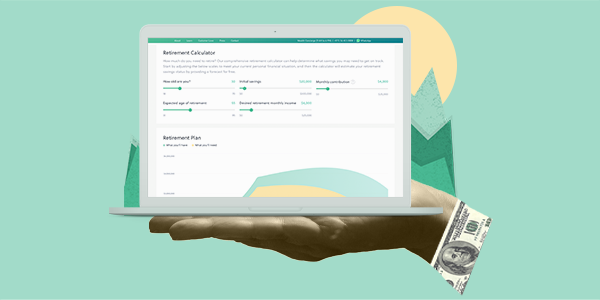Everyone has a different picture of what their retirement will look like.
This means that the amount of money you will need to retire could be much more, or far less, than others your age. Retirement planning all depends on your current lifestyle, expected lifestyle and where you plan to retire.
However, no matter how you answer those questions, the key to a happy retirement always comes down to preparation. And like any other type of planning, the earlier the better.
With retirement planning, you must first calculate when you want to retire. Then you must figure out how to best use savings and investments to get there.
Getting a jump on retirement planning will save a lot of time and money down the road, not to mention eliminate needless stress.
Below, we have collected some simple tips to help you get an early jump on retirement planning.
Calculate how many years of retirement to plan for
The first thing to do when planning for retirement sounds obvious, but many people never think about it.
To start, you must first take time to consider when you want to retire and how many years you can expect to live for. Your longevity will impact how much money you’ll need to save, as well as the inheritance you’d like to leave your family.
Understandably, these can be stressful questions and, unfortunately, this is why people often put them off and they remain unanswered for too long.
However, these days retirement planning is much easier to jumpstart thanks to readily available online tools. You can use our retirement calculator to begin measuring your currency financial situation and life expectancy; the calculator will then instantly generate recommended savings to meet your ideal monthly retirement income.

These kinds of tools can now greatly help us get a grasp on what used to be a tricky science.
However, making this calculation can be complicated, so it always helps to speak with an advisor.
At Sarwa, we have personal financial advisors ready to help you with retirement investing. Get in touch for free retirement planning advice.
Plan your ideal retirement income
Here comes the big question: How much will your retirement cost?
Answering this question will greatly depend on what your financial situation is now, as well as the type of lifestyle you would like during retirement. Rarely are two types of retirement plans exactly the same.
This is where an expert can help. A personal financial advisor will guide you to work out the total figure you need in order to establish a monthly retirement income worthy of your goals.
This stage of retirement planning requires understanding that expenses can dramatically change once we become retirees.
Often, people will budget more income to possible healthcare expenses and travel. Meanwhile, taxation is different and — chances are — previously burdensome mortgages and loans are now paid off.
Therefore, to get a grasp on your retirement income, we first need to know what your annual retirement expenses will be. Indeed, after calculating your expected lifestyle choices, it’s likely that your annual expenses in retirement can be a lot lower than your expenses today.
Again, a retirement calculator tool like the one offered by Sarwa can greatly help. However, it’s worth bearing in mind that, depending on where you live, you may also enjoy some further benefits in retirement.
For example, if you’re a UK national, you may be able to claim a state pension or in the US you may enjoy some healthcare benefits. So you should factor these into your calculations too.
In essence, Sarwa breaks down retirement costs into two categories — non-discretionary and discretionary spending.
Non-discretionary spending
These are your necessary expenses which, for the most part, are unavoidable:
- Living Expenses: Here you should look to understand how much it will cost to maintain your lifestyle. Consider everything from groceries to utility bills.
- Debt: This can be debt from credit cards or loans as well as your mortgage. Anything you owe needs to be accounted for when identifying your expenses.
- Taxes: If you’re planning to relocate in retirement then you could be subject to taxes in the country that you move to. So, you may need to keep some money aside to settle your tax bill at the end of the year.
Discretionary spending
Other expenses can be considered non-essential luxuries. Common discretionary items include:
- Travel: Many people look forward to seeing the world in retirement. If you would like to travel or take a dream holiday, now could be a good time to budget for it.
- Hobbies: Retirement gives people more time to take up a new or old hobby. These may incur some costs which should be considered, even if small.
- Luxuries: Everyone has a different idea of luxury. But whether you enjoy jet-setting and fine dining or meeting friends for yoga and coffee, you’ll need to factor non-essential purchases into your expenses.
Begin a retirement savings plan
Funding your retirement requires that you follow a regular savings plan.
One trick to saving for retirement begins in paying down other outstanding debts or obligations first. At the very least, you should focus on reducing outstanding loans before you begin to put aside for your retirement pot.
This is especially true with a mortgage; by paying down a mortgage, you are, in essence, saving for retirement. Indeed, any real estate or businesses that you own can be used as founding contributions when calculating retirement savings.
Moreover, we recommend that you first work out all the income you generate without relying on investment. This will provide a baseline to establish how much you can and should save, as well as how to best determine your retirement investment plan later on.
It’s also worth making sure that your employer is doing all that they can to help you save.
In general, non-investment income sources will form the foundation of retirement savings.
For example, effective January 1, 2020 companies based in the DIFC will be required to deposit employees end-of-service benefits (EOSB) into the DIFC Employee Workplace Savings Plan (DEWS). If your employer is enrolling, you should understand how much you will receive from it regularly.
Choose the best retirement investment plan
Selecting a retirement investment plan can be overwhelming. Not all accounts and investment platforms will be the right choice for you.
A significant part of understanding what is the best solution for you is to first work out the costs. Fees can erode your wealth, so you shouldn’t be paying over 1% for any of your retirement investments.
Passive funds can keep these costs down, but it is also advisable to talk to a professional personal financial advisor about the choices that you are going to make. They will help you understand the costs and keep them low.
A good rule of thumb is to focus more on long-term investment plans established in low-risk instruments. Therefore, long-term investment plans are much more common than short-term investments when it comes to retirement planning.
At Sarwa, we provide access to long-term investments in a simple, affordable manner. Our approach draws upon the work of top academics to offer low-risk investments, giving your money the best chance of growing over time.
Start planning your retirement today
It doesn’t matter if you haven’t started to save or invest for retirement; the best time to start is now.
In fact, how much you begin to save and invest is less important than starting and sticking to the plan that you and your advisor have made.
Find out more about the magic of smart long-term investing and why it pays to start your retirement planning today by watching this YouTube video.
You can also begin planning for your retirement by booking a free call with one of Sarwa’s personal financial advisors.
Ready to invest in your future?
